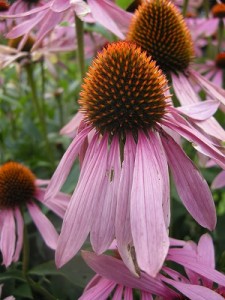
More evidence that low-calorie sweeteners are bad for your health
Studies show that artificial sweeteners can raise the risk of hypertension, metabolic syndrome, type 2 diabetes and heart disease, including stroke.

Every home should have a few simple herbal remedies to hand in addition to a standard first-aid kit.
Many situations that need a first-aid solution – such as minor accidents and injuries, insect bites and stings, abrasions, and minor burns and scalds – will also benefit from the healing properties of a herbal remedy.
If you are in any doubt, seek urgent medical advice first. This chart is not comprehensive, but it does contain the key herbs for emergency aid.
Aloe vera (Aloe vera)
Highly effective soothing and cooling properties. Break off a leaf from a fresh plant. Split it open, and use the fresh gel to soothe rashes, minor burns, scalds, or sunburn. Alternatively, buy aloe vera juice.
Calendula (Calendula officinalis)
An antiseptic and healing herb. Combine the tincture with St John’s wort and dab onto spots, or dilute 1 teaspoon in half a cup of boiled water to use as an antiseptic; cleansing lotion for abrasions, or use as a healing cream.
Chamomile (Matricaria recutita)
Soothing and calming. Sip the tea to ease fevers, insomnia, and nausea, or sweeten with honey to relieve shock. The cooled tea can be used as a cooling and soothing lotion’ inflamed skin and rashes.
Comfrey (Symphytum officinale)
Traditionally known as “knitbone” because of its healing properties. Pound the fresh leaves into a pulp and apply as a poultice for sprains, bruises, and ulcers. Alternate apply as a macerated oil or cream.
Echinacea (Echinacea purpurea)
Known as “nature’s antibiotic'”, echinacea should be used whenever necessary to an infection. Dilute the tincture and use as a lotion for wounds, insect or animal bite stings. Also take internally to boost immunity.
Garlic (Allium sativum)
A pungent but effective kitchen herb with antiseptic and anti-catarrhal properties. Eat a raw clove twice daily to alleviate congestion and help prevent infections. A fresh cli rubbed onto an infected spot or boil is also effective.
Lavender (Lavandula angustifolia)
Healing, calming and anti-inflammatory, this versatile essential oil can be dabbed or the skin to relieve insect bites, sunburn or minor burns, and scalds. Inhaling the oil’ relieve shock, or dab a little on the temples to alleviate tension headaches or insomnia.
Plantain (Plantago lanceolata)
A naturally soothing herb with an antihistamine action. Bruise the fresh leaves and apply to rashes, insect bites, and stings to calm the irritation. Combine the tincture’ calendula as a healing mouthwash or for cuts and abrasions.
Slippery elm (Ulmus rubra)
Lines the stomach and reduces inflammation: mix with water and drink to relieve indigestion, gastritis and stomach upsets. Mix a little water into a paste to make a poultice to draw out splinters, boils, and abscesses.
Witch hazel (Hamamelis virginiana)
This plant is well known as an instantly cooling and soothing herb. Soak some cotton wool in distilled witch hazel and apply liberally to relieve discomfort from insect bites, bruises, minor burns, sunburn, and piles (haemorrhoids).

Please subscribe me to your newsletter mailing list. I have read the
privacy statement